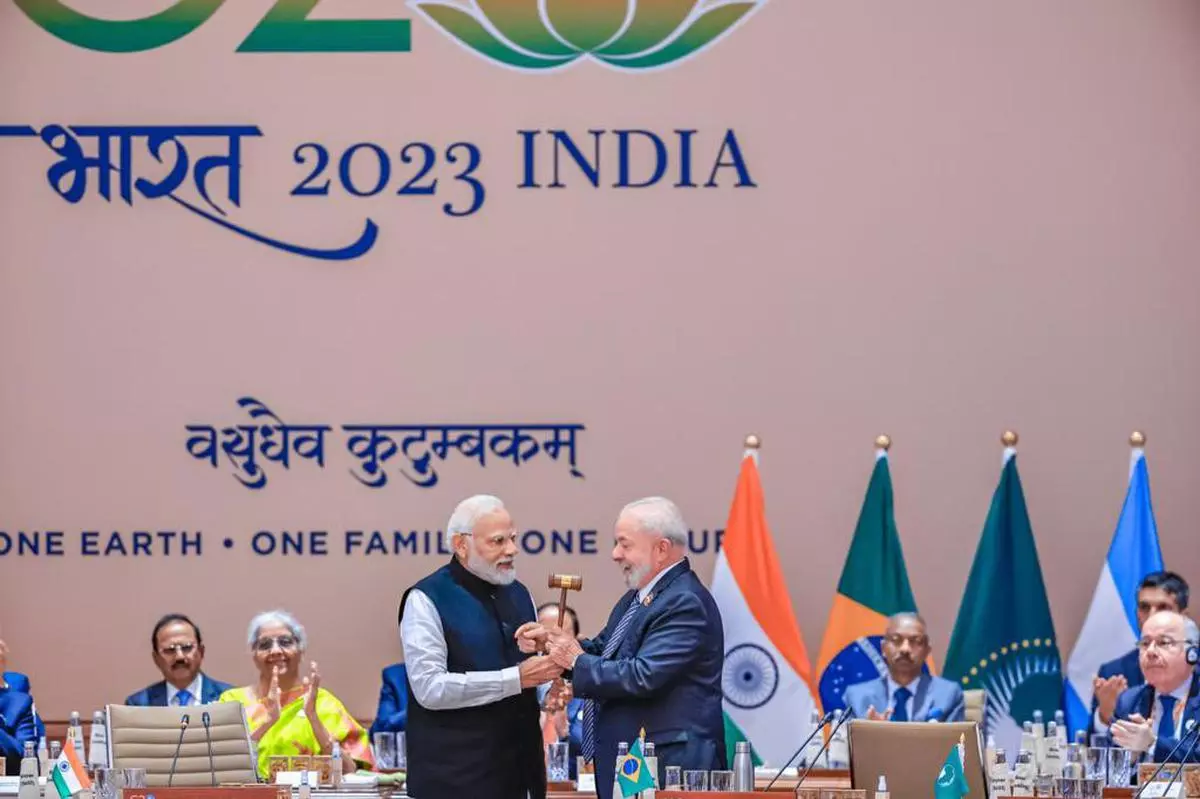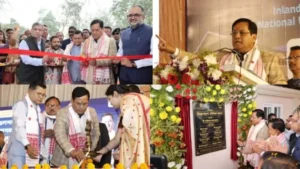India’s presidency of the G20 has seen significant accomplishments and highlights, as it brought together member countries to address critical global issues, particularly the war in Ukraine, and amplified the voice of emerging markets as mediators. The New Delhi Declaration, issued during the two-day G20 Summit, outlined the direction for future negotiations on key economic matters.
India’s G20 Presidency: Key Achievements and Initiatives
-
New Delhi Declaration: The G20 Summit’s first day featured the issuance of the New Delhi Declaration, which set the stage for discussions on crucial economic topics. Notably, it introduced a groundbreaking figure of $5.9 trillion for green financing requirements in developing nations, emphasizing climate financing.
- Geopolitical Diplomacy: India played a pivotal role in facilitating consensus on geopolitical issues, particularly the Russia-Ukraine crisis. It engaged closely with Brazil, South Africa, and Indonesia, demonstrating the influence of emerging markets in shaping diplomatic outcomes.
- Inclusive Partnerships: The declaration recognized the contributions of Turkey and the UN-brokered Istanbul Agreements in ensuring the unhindered delivery of grain, foodstuffs, and fertilizers between Russia and Ukraine.
-
Diplomatic Endeavor: India’s diplomatic efforts during the G20 presidency were extensive, involving over 200 hours of non-stop negotiations, 300 bilateral meetings, and 15 drafts to achieve consensus.

Global Impact and Recognition
-
Global Implications: The decisions made at the G20 Summit were acknowledged to have far-reaching consequences for the future, given the current global challenges such as climate change, fragility, and conflict. The summit reaffirmed the G20’s capacity to address pressing global issues.
-
Diplomatic Breakthrough: The joint communique issued by the G20 leaders, amid intense negotiations, marked a substantial diplomatic breakthrough. It underscored the commitment of all states to refrain from the use of force for territorial acquisition and deemed the use or threat of nuclear weapons as unacceptable.
Key Transformations and Commitments
-
African Union’s Inclusion: One of the significant outcomes of India’s G20 presidency was the African Union joining the G20 as a permanent member, signifying a milestone in global diplomacy.
- Enhanced Multilateral Development Banks (MDBs): The G20 Independent Expert Group recommended strengthening MDBs, with a focus on enhancing the World Bank’s financing capacity. Additionally, a roadmap for implementing capital adequacy framework recommendations for MDBs was endorsed, potentially unlocking $200 billion in lending capacity over the next decade.
- Crypto Regulation: A global consensus on the need for clearer policies and regulations for cryptocurrencies gained momentum under India’s leadership.
- Debt Relief Framework: India facilitated a consensus on a debt relief framework for Zambia, Ghana, and Ethiopia, addressing their financial challenges.
- Sustainable Cities: The financing of sustainable and resilient cities for the future was integrated into the framework, making it accessible to MDBs.
- Unanimous Agreement: All 83 paragraphs of the joint declaration enjoyed 100% consensus among all countries, exemplifying India’s ability to foster unity and cooperation on the global stage.
-
Inclusive G20 Declaration: The G20 Declaration, without any footnotes or chair’s summary, demonstrated India’s prowess in bringing diverse nations together for constructive dialogue and collaboration.
Find More News related to Summits and Conferences




 Which Country Officially Uses Two Differ...
Which Country Officially Uses Two Differ...
 Historic Glory! Jammu & Kashmir Win ...
Historic Glory! Jammu & Kashmir Win ...
 Three Major Inland Waterways Projects Op...
Three Major Inland Waterways Projects Op...








